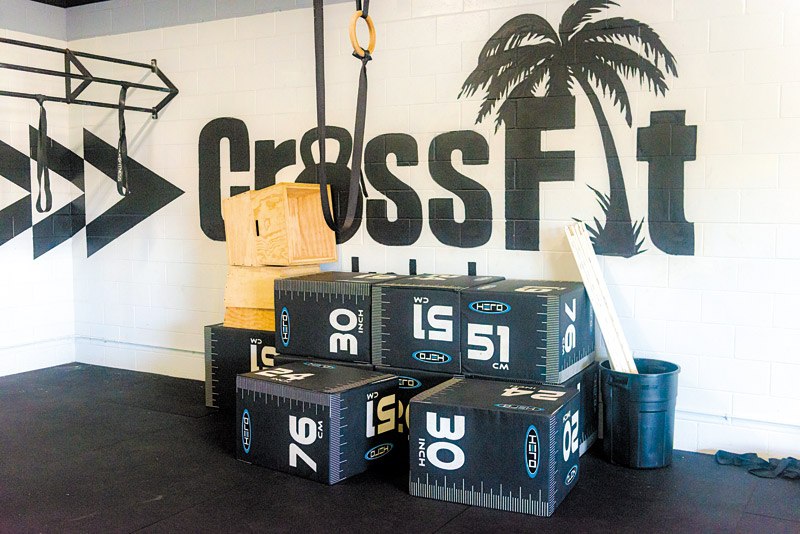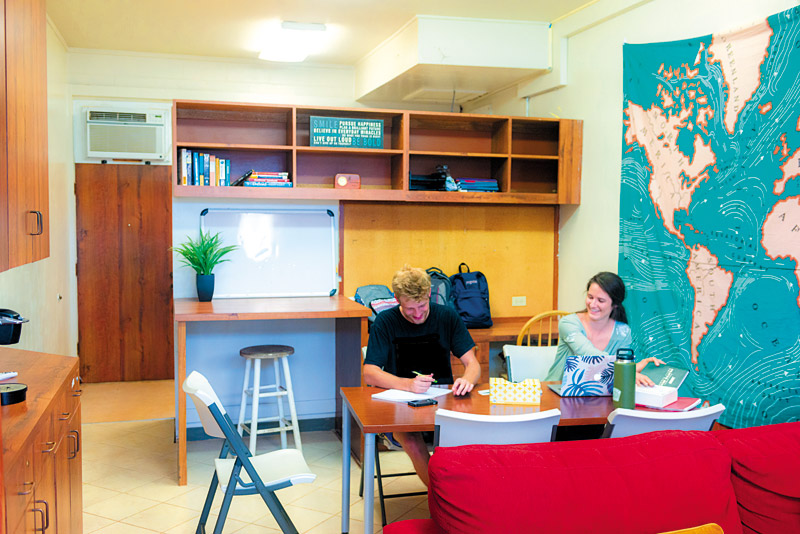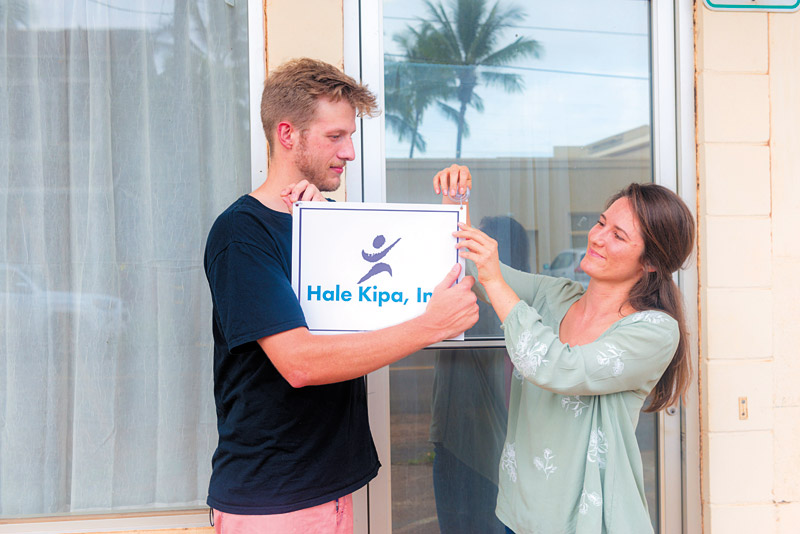The Heart of Hale Kipa
Hale Kipa has a new location in Waimea, which is good news for area youth ages 12-21 in need of support, mentorship and guidance.
Missing school can have detrimental, long-lasting effects on students. Jon Enns and Kyla Dill are aware of those consequences and are working together to make sure at-risk youth don’t have to face them. As case managers at Hale Kipa’s new Waimea location, Dill and Enns give keiki the proper tools needed to help get them back on track.
“There are a lot of things that the world has to offer, and they sell themselves short,” says Dill. “If they don’t get some kind of credential, whether that’s a GED or diploma, then they’re just going to make it really hard for themselves. We’re setting them up for a full life and their future family.”
Students are referred to Hale Kipa after they miss a certain number of days at school. The state Department of Education and family court system, as well as Hale Kipa, work with these kids to help alleviate whatever issues may be causing them to skip classes. If they miss too many days of school, a petition is filed and the students wind up in court.
“The goal is to refer the kids to us before it gets to that point so that we can divert them away from that,” says Dill.

Hale Kipa relies on partners ilke CrossFit Kekaha to ensure their students become well-rounded citizens.
She and Enns spend time with the students throughout the day, including school lunch breaks, and serve as guides and mentors after school. They also tutor keiki who are behind in their classes and who may be struggling academically.
“Which can be really discouraging for kids and makes their motivation go down,” says Dill.
She helps students with their homework and gets them connected to other resources to resolve their issues, including counseling for emotional troubles. Dill and Enns also encourage students to find healthy social outlets, such as taking them to CrossFit Kekaha for exercise.
“We make sure it’s an enjoyable thing, and encouraging their growth as a human being and not just as a school kid,” says Enns.
Hale Kipa, or the “House of Friendliness,” is a nonprofit that offers a variety of programs to support at-risk youth ages 12 to around 21. Community-based outreach and advocacy, mentorship for youth on probation, school success and work development are among the many programs offered. The new location on the West-side focuses on School Attendance Support Services (SASS), and the office, which is located in close proximity to the students it serves at Waimea Canyon Middle School and Waimea High School, gives keiki a comfortable place to relax, have snacks and study.
SASS, which served around 30 students last school year, was created under the Truancy Court Collaboration project, and through the partnership of other organizations such as Lili‘uokalani Trust, increases student attendance and promotes family engagement. Dill, who has worked with Hale Kipa since 2014, has mainly been conducting GED-based tutoring through the Līhu‘e location with keiki who had already dropped out of school and were mostly on probation. She is excited to be “on the other side of that now.”
“Curbing the issue before it gets to that point,” she says.
One of the challenges she faces, however, is getting parents to recognize that Hale Kipa serves as a support system and not as a punishment.
“When families hear that their kids are being referred to a program, they feel like it’s a negative thing,” says Dill.
The program is a preventative measure before legal action is taken. And when kids participate in SASS, positive changes do take place, even though at times the modifications may seem minor because issues usually run much deeper than what she and Enns can address.
“You really have to learn to celebrate the little victories,” she says.
She’s also learned that there’s nothing quite like a poke bowl to get a student to open up.
“The kids always want food; it makes them happy,” she says.
Dill likes those moments when she can have “real” conversations with the kids; when she says the students “speak the truth about their lives.”
“It’s neat that this job gives me an opportunity to be a part of people’s lives that I wouldn’t get to be a part of before; our paths wouldn’t have crossed,” says Dill, who graduated from Kapa‘a High. “I really love having the opportunity to speak into their lives and just let them know, and help them see how much potential they have.”
She and Enns plan to take advantage of their new space and continue connecting with more programs and resources on the island that can offer additional support. The goal is to assist as many keiki as possible in leading successful and productive lives.
“You see a lot of kids making bad choices and ending up in bad places and it’s heartbreaking. My heart goes out to them,” says Dill. “I want to show them that we care and want to help them.”
Visit halekipa.org for more information.






